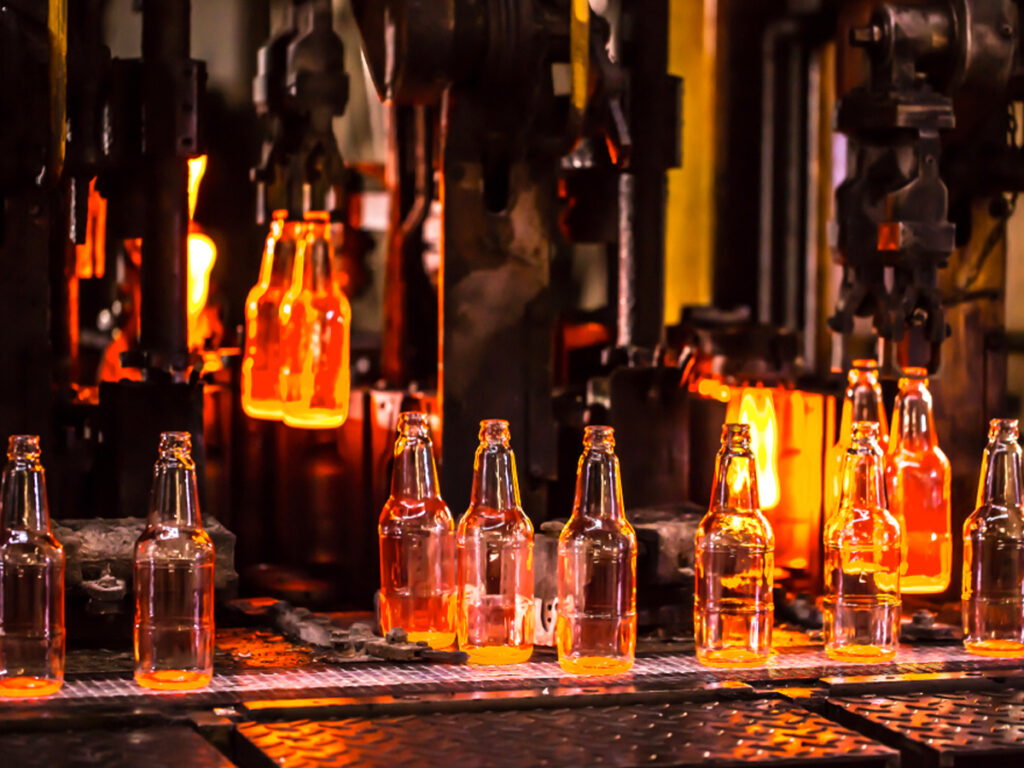Glass manufacturing operations involve some of the most extreme temperature conditions found in industrial applications, with furnaces operating at temperatures exceeding 2800°F while producing products ranging from container glass to advanced optical components. The mechanical systems supporting glass production must function reliably despite exposure to intense heat, thermal cycling, and corrosive atmospheres created by glass-making chemicals. Specialized lubrication approaches become essential for maintaining equipment reliability while ensuring consistent product quality in these demanding high-temperature environments. Kernow Oils develops high-temperature lubrication solutions specifically engineered for the extreme conditions encountered in glass manufacturing operations.
Furnace operations represent the heart of glass production, where raw materials are melted and refined at extreme temperatures before being formed into finished products. The mechanical systems supporting furnace operations—including charge equipment, stirring mechanisms, and atmosphere control systems—must operate reliably despite exposure to radiant heat and corrosive furnace gases. Specialized high-temperature lubricants with exceptional thermal stability become essential for maintaining mechanical reliability in these extreme environments.
Glass forming operations present unique lubrication challenges due to the combination of high temperatures, precise mechanical control, and product quality requirements. Blow molding equipment, press mechanisms, and conveyor systems handling hot glass products must operate with exceptional precision while exposed to elevated temperatures that can exceed 1000°F. The lubricants protecting these systems must maintain their protective properties despite thermal exposure while providing the consistent mechanical performance required for dimensional accuracy and surface quality in finished glass products.
Annealing operations that relieve stress in glass products involve controlled heating and cooling cycles that create challenging conditions for nearby mechanical equipment. Conveyor drives, door mechanisms, and atmosphere control systems must operate reliably despite temperature cycling between ambient and elevated temperatures. Thermal expansion and contraction of mechanical components requires lubricants that maintain protection throughout these temperature variations while accommodating dimensional changes that occur during heating and cooling cycles.
Container glass production lines operate at remarkable speeds while handling products at elevated temperatures, requiring exceptional mechanical precision and reliability. Forming machines, transfer mechanisms, and inspection equipment must coordinate complex motions with split-second timing to maintain production rates while ensuring container quality. Any mechanical inconsistency caused by inadequate lubrication can result in product defects, equipment damage, or safety hazards in these high-speed operations.
Batch preparation and raw material handling systems must operate reliably while processing abrasive materials including sand, soda ash, and cullet that can contaminate lubrication systems. Conveyors, mixers, and charging equipment handle materials that create dusty environments while maintaining the accuracy required for proper glass chemistry. Contamination-resistant lubricants with enhanced filtration capabilities become essential for maintaining equipment reliability in these challenging conditions.
Quality control requirements in glass manufacturing extend to lubrication practices through statistical process control systems that monitor dimensional accuracy, optical properties, and surface quality throughout production. Mechanical variations caused by inadequate lubrication can affect these critical quality parameters, potentially resulting in product rejection or customer complaints. Preventive maintenance programs that ensure optimal lubrication help maintain the mechanical consistency required for achieving target quality levels.
Environmental considerations in glass manufacturing include energy efficiency objectives and emissions control requirements that can influence lubrication practices. The high energy consumption required for glass melting makes efficiency improvements particularly valuable, while emissions control systems must operate reliably to meet environmental compliance requirements. Proper lubrication contributes to both energy efficiency and emissions control system reliability.
Safety considerations in glass manufacturing emphasize the importance of reliable mechanical systems due to the extreme temperatures and potential hazards associated with glass production. Equipment failures can create safety risks for personnel while potentially causing damage to expensive furnace systems or production equipment. The reliability benefits provided by proper lubrication help maintain safe operating conditions while protecting valuable capital equipment.
As glass manufacturing technology continues evolving toward more efficient processes and advanced product formulations, lubrication requirements will become increasingly demanding. Advanced furnace designs, precision forming techniques, and specialty glass products all require enhanced reliability from the mechanical systems that support these sophisticated operations. This evolution emphasizes the importance of partnering with lubricant suppliers who understand the unique challenges of glass manufacturing and can provide specialized solutions for these extreme operating conditions.
For more information on glass manufacturing technology, visit the Glass Manufacturing Industry Council or explore resources from the American Ceramic Society.

